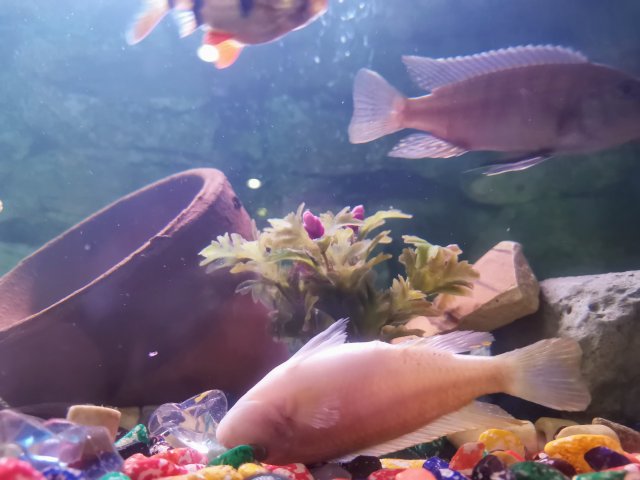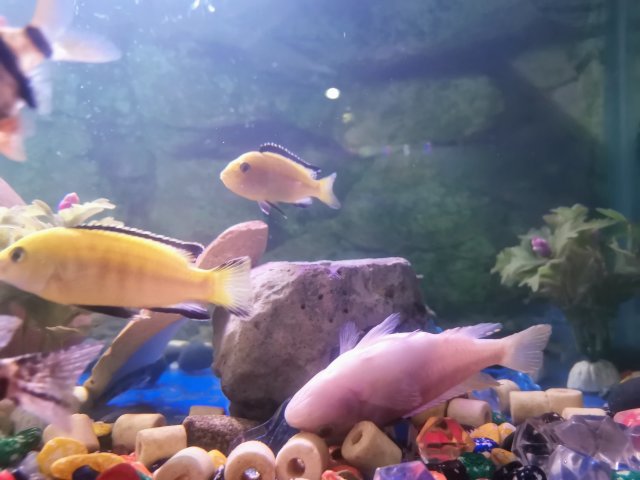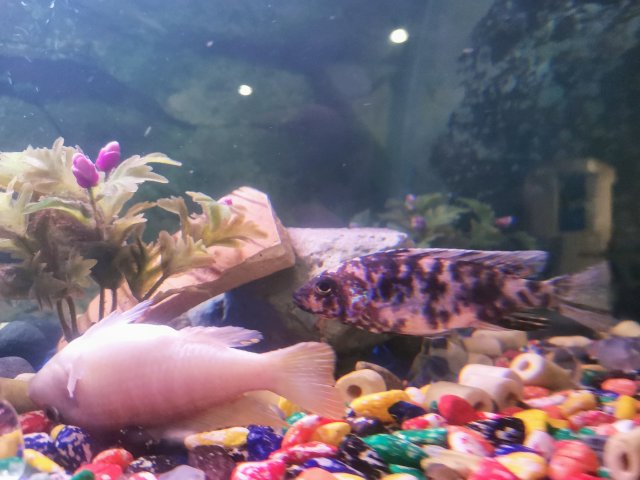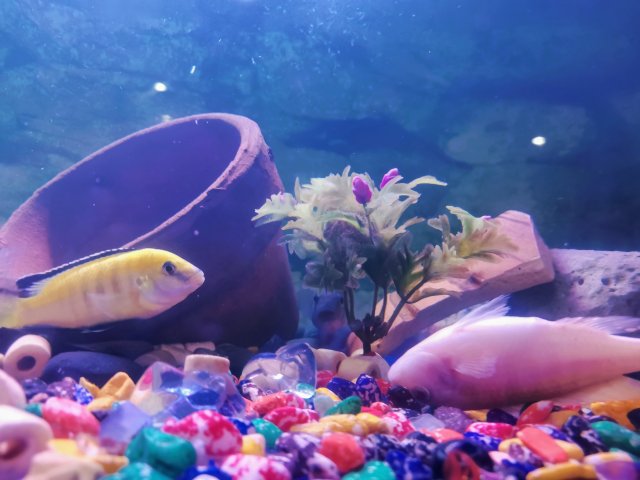Sudden cichlid death
- Thread starter WarTank
- Start date
You are using an out of date browser. It may not display this or other websites correctly.
You should upgrade or use an alternative browser.
You should upgrade or use an alternative browser.
- Status
- Not open for further replies.
I have a cichlid community tank of 65gl for over a year now. . Just made a 20% water change and one of of my 3.5" mbuna suddenly looked bloated, sank to the bottom and inexplicably died within less then a half hour. All the other fish are fine. Any idea or advice, please? View attachment 229887View attachment 229888
View attachment 229885

Double-check your water parameters and make sure you're not showing any problems there. If they're good, keep a close watch for any health issues the next few days. If you don't see any other issues, then you can probably chalk it up to incurable health issues with that fish.
We are always on the look out for potential diseases and other health issues in our tanks, which we need to be to give the best care to our fish. But sometimes a fish dies simply because it is its time to die, whether it be from internal health issues (such as cancer or organ failure), genetics (from inbreeding or a random deleterious genetic mutation) , or simply old age. We can't explain it, and it bothers us, but there isn't anything we could have done to prevent that fish's death and it's a perfectly natural part of life.
WYite
We are always on the look out for potential diseases and other health issues in our tanks, which we need to be to give the best care to our fish. But sometimes a fish dies simply because it is its time to die, whether it be from internal health issues (such as cancer or organ failure), genetics (from inbreeding or a random deleterious genetic mutation) , or simply old age. We can't explain it, and it bothers us, but there isn't anything we could have done to prevent that fish's death and it's a perfectly natural part of life.
WYite
OK. Water parameters, check.. No issue there. Everyone else happy going about their biz too.Double-check your water parameters and make sure you're not showing any problems there. If they're good, keep a close watch for any health issues the next few days. If you don't see any other issues, then you can probably chalk it up to incurable health issues with that fish.
We are always on the look out for potential diseases and other health issues in our tanks, which we need to be to give the best care to our fish. But sometimes a fish dies simply because it is its time to die, whether it be from internal health issues (such as cancer or organ failure), genetics (from inbreeding or a random deleterious genetic mutation) , or simply old age. We can't explain it, and it bothers us, but there isn't anything we could have done to prevent that fish's death and it's a perfectly natural part of life.
WYite
Which comes to the next thing..and makes me think of this saying.. "the only certainly in life.. Is death!". Really makes us respect nature more in these trying times. Stay strong everyone, stay safe..and stay home!
Test your water quality again very carefully. Water quality issues are often invisible to the human eye and can have dramatic effects on the wellbeing and health of your aquarium without any obvious warning. If there are physical symptoms on the fish, consider another diagnosis for the death and treat the remaining fish accordingly. If only one fish in your tank has died consider the age/lifespan of the fish as, like all animals, fish will just die for the age limit. It can happen, Don't be unhappy. But you have to be more careful about all other fish. Testing regularly can allow you to address water quality issues before it is too late for all other fish.
There are some other issues that could cause unexplained fish death are as below:
De-oxygenation – in this case often only the larger fish will have died because they have a higher oxygen requirement.
Acute systemic bacterial infection – fish die before exhibiting many physical symptoms.
There are some other issues that could cause unexplained fish death are as below:
De-oxygenation – in this case often only the larger fish will have died because they have a higher oxygen requirement.
Acute systemic bacterial infection – fish die before exhibiting many physical symptoms.
I would guess he checked ammonia/nitrate/nitrite. We need exact parameters.Test your water quality again very carefully. Water quality issues are often invisible to the human eye and can have dramatic effects on the wellbeing and health of your aquarium without any obvious warning. If there are physical symptoms on the fish, consider another diagnosis for the death and treat the remaining fish accordingly. If only one fish in your tank has died consider the age/lifespan of the fish as, like all animals, fish will just die for the age limit. It can happen, Don't be unhappy. But you have to be more careful about all other fish. Testing regularly can allow you to address water quality issues before it is too late for all other fish.
There are some other issues that could cause unexplained fish death are as below:
De-oxygenation – in this case often only the larger fish will have died because they have a higher oxygen requirement.
Acute systemic bacterial infection – fish die before exhibiting many physical symptoms.
Certain African cichlids can get bloated because they need a diet supplemented with vegetables…if They are fed to much protein or fat then the fish could get bloated. What’s its diet?
- Status
- Not open for further replies.







